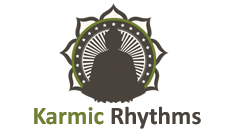Course: PG Certificate in Integrative Counselling and Psychotherapy
(level: advanced; specialization: Indian Psychology )
Total Modules: 30
Credits: 48
Duration: One Year
Total Learning: Equivalent to 800 hours
Contact Hours with Trainer: 75-100 hours
Mode of training: Lectures, Discussions, Videotapes, Case studies, Role-play, Reflective log, Self-study (swadhyaya), Abhyasa or Coaching the Self, Family of Origin Coaching, Assignments
Course trainer: Dr. Satya Prakash Choudhary
Institute : MindCare Clinic and Institute of Behavioural Sciences
Syllabus/Topics covered in the training:
Module 1 & 2:
Overview of the diverse traditions of Yoga: Raja yoga of Patanjali, Vedantic yoga, Buddhist yoga, Tantric yoga, Hatha yoga
An overview of Yoga Sutras of Patanjali
An overview of Ayurveda- The holistic principles of Ancient Indian Medicine
An overview of Buddhist theory and practice
Module 3:
Introduction to Counselling and Psychotherapy
Counsellor: Person and Professional
Ethical Issues in Counselling Practice
Examining our world view and its influence on our approach to Counselling
Modernism and Postmodernism as relevant to Psychotherapeutic approaches
Evidence-based approach to counselling- What constitutes evidence?
Module 4:
Individual and Systemic Approaches to Therapy
Humanism:
• the ancient Indian approach in the works of Patanjali, Caraka and Vagbhatta
• Modern approaches in the works of Rogers, May and Frankl
Person-Centered Therapy: Empathic conditions derived from ‘Astanga Hrdaya’ compared to empathic conditions derived from Carl Rogers
Module 5:
An introduction to Psychodynamic Theory & Practice
An introduction to Family Therapy: Strategic, Bowen Family Systems, Milan/Post Milan, Brief Solution Focussed and Narrative models
Module 6:
Theoretical appreciation of the ‘Mind-Body-Spirit’ as per Samkhya-Yoga-Vedanta
An integral model of ‘Mind-Body-Spirit’ in Classical Ayurveda
Consciousness in Yoga, Vedanta, Caraka Samhita and Modern psychology
Self-concept in modern psychology, self-concept in yoga
Towards a theory of mind that can explain both illness and wellness
Module 7:
Yama and Niyama- yogic values for a wholesome life
Sadvrtta- The role of Wholesome Behavioural Regimen in Maintaining Mental Wellness
Being and Having: Questioning the philosophy of Consumerism as a way of life
Module 8:
The Klesas in Yoga psychology- the five causes of suffering
Avidya: Ignorance, the root of all suffering
Ahamkara- the “I” of the storm
Raga and Dvesha- Passionate pursuit and Aversive withdrawal
Abhinivesha- Self-righteous clinging, the doorway to perpetual suffering
Module 9:
The role of Asana and Breath work in Mind-Body approaches
Breath-work for emotional healing, heightened awareness, and trance states.
The theory and practice of Meditation: (i) Mindfulness based and (ii) Concentration based
Module 10 & 11:
Evolutionary Neurosciences
Attachment theory
Bowen Family Systems theory and Differentiation of Self
Family of origin, Early experiences and Revisiting the Family of origin
‘Differentiation of Self’ and “Self-Realization” through Abhyasa: “Coaching the Self” through evidence-based Mind-Body approaches adapted from both Yoga as well as Modern studies
Module 12:
Karma and Rta as seen in Family dynamics and Bert Hellinger’s ‘Orders of Love’
The Unconscious in Psychodynamic Psychologies and the role of Karmasaya, Vasanas and Samskaras, in Yoga psychology
Projection and projective identification: Psychodynamic philosophy, Advaita Vedanta/Mayavada and Chitta matra Buddhism
Postmodernism, Sunyavada Buddhism and Advaita vedanta
Kundalini and the Unconscious mind
Kulakundalini and Family projection process and multigenerational influences
Module 13:
Consciousness and Healing: Integral approaches to ‘Mind-Body’ Healing
Daivavyapasraya cikitsa- Spiritual approaches to Healing
Transpersonal approaches to Counselling and Psychotherapy
Mantra yoga/ Japa yoga: Chanting as a spiritual discipline; chanting as a ‘Relaxation Response’.
Bhakti yoga- the technique of idealized transference of emotions
Sacred Myth as a Therapeutic tool
‘Agni-Someeyam’- revitalizing an ancient approach to conceptualization and planning therapy
Module 14 & 15:
Personality theories
Assessment of Personality
Administering Psychological Assessments
Jungian typology
Millon Index of Personality Styles
Typological approach through Triguna and Tridosha siddhanthas
‘Agni-Soma’ model of human behavior
Module 16, & 17: Mind-Body Medicine
Overview of the best of Leading Edge Thinkers, Research and Practice in Mind-Body Medicine
Psychoneuroimmunology: Evidence-based research studies
Afflicting & Healing Emotions: The role of Emotions in Illness and Wellness
Brahma Vihara bhavana: The nurturing of unbounded friendliness, compassion, joy and equanimity as a mind-set that nurtures life and relationships
Brahma viharas in Patanjali Yoga, Buddhist psychology and Ayurveda (Vagbhatta’s ‘Astanga Hrdayam’)
Module 18:
Psychotherapeutic Work with Emotions
Acceptance, Forgiveness and Compassion
Anger and Grief management
Module 19 & 20:
Prescriptions for Self-Healing: Taking responsibility for Self
Essential Tools, Strategies and Resources for Healing & Recovery
The Simonton Cancer Program as a model for complementary approaches to Mind-Body Medicine
Therapeutic Intentionality and other common denominators in Pranic healing, Reiki and Energy-based Medicine.
Module 21:
Hypnosis, Visualization and Raja Yoga: Similarities and Dissimilarities
Traditional and Ericksonian approaches to Brief Hypnotic Psychotherapy
Modules 22 & 23:
Cognitive behavioral therapy, REBT and Yoga-Vedanta
Behaviour Therapy
Cognitive Therapy
An introduction to Schema therapy
Self-Awareness and Manonigraha: Managing reactivity by managing the self through conscious living
Time out and Cool down techniques
The Yoga-Vedantic practices of viveka (discernment or rational thinking), vichara (reflective thinking), and “Sakshi bhava” or “Choiceless Awareness ” in coaching the self in Non-reactivity
Living Consciously in the moment as opposed to Living Automatically in response to old evolutionary and family of origin influences
Identifying Cognitive distortions- Rational thinking in Vedanta and REBT
Reflective functioning
Module 24:
Positive Psychology, Happiness and Yoga-Vedanta
Module 25:
Mental Health Assessment
Modules 26 & 27:
Initial interview- Engagement, Defining the Problem, Goal Setting, Developing Therapeutic Contracts
Interventive and Intentional Interviewing
Family Evaluation
Module 28 & 29:
Counselling skills practice-1
Counselling skills practice-2
Module 30:
Multicultural Counselling
An Integrative Perspective
Legal and Ethical Issues in Counselling Practice
Where can I go from here and what can I do next?
